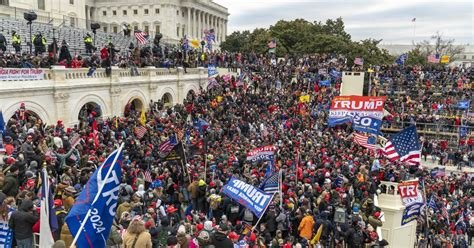
Introduction: The Rise of Illegitimate Political Discourse
In today’s political landscape, Illegitimate Political Discourse has emerged as a significant concern. This trend, characterized by misinformation, divisive rhetoric, and polarizing narratives, poses a serious threat to the foundations of democratic dialogue and informed decision-making.
Historical Context and Evolution
Tracing the Roots of Illegitimate Discourse reveals a long history, evolving significantly in the digital age. From the propaganda of ancient empires to the yellow journalism of the 19th century, the manipulation of political discourse has always been a tool for power. In the digital era, this has taken on new dimensions with the advent of social media and 24-hour news cycles, making it easier to spread misinformation rapidly.
Characteristics of Illegitimate Discourse
Distinguishing Illegitimate Political Conversations involves identifying key traits such as misinformation, ad hominem attacks, and unfounded allegations. These tactics are often used to undermine opponents and influence public opinion, frequently at the expense of factual accuracy and rational debate.
Digital Age: A New Arena for Discourse
Social Media’s Role in Amplifying Illegitimate Discourse is profound. Platforms like Twitter and Facebook have become hotbeds for the rapid spread of misinformation, often polarizing public opinion and creating echo chambers that reinforce divisive narratives.
Societal and Political Impacts
The Ripple Effects on Society and Governance are far-reaching. Illegitimate discourse contributes to societal division, erodes trust in institutions, and can lead to the disenfranchisement of certain groups. It also complicates policy-making, as leaders must navigate a landscape filled with misinformation.
Media’s Influence and Responsibility
Media in Shaping Political Narratives plays a dual role. While media outlets can be conduits for misinformation, they also have the power and responsibility to counteract illegitimate discourse by upholding journalistic standards, fact-checking, and providing balanced coverage.
Global Perspectives on Illegitimate Discourse
A Worldwide Phenomenon: Different Approaches and Challenges shows that this issue transcends borders. Countries around the world grapple with the challenge of balancing free speech with the need to curb misinformation. The approaches vary significantly, from stringent regulation in some nations to more liberal policies in others.
Legal and Ethical Boundaries
Navigating Legal and Ethical Aspects of Political Speech involves a delicate balance. Free speech is a fundamental right, but it often collides with the need to prevent harm caused by false narratives. Legal frameworks worldwide are continuously evolving to address this challenge.
Individual Strategies Against Misinformation
Empowering Individuals: Tools to Combat Illegitimate Discourse includes promoting media literacy, critical thinking, and encouraging individuals to seek out multiple news sources. By becoming more discerning consumers of information, individuals can play a crucial role in countering misinformation.
The Role of Education in Political Discourse
Educational Initiatives for an Informed Society are essential. Schools and universities play a pivotal role in teaching critical thinking and media literacy, equipping future generations with the skills needed to navigate complex political landscapes.
Governmental Response to Misinformation
Policy Responses to Illegitimate Discourse require innovative approaches. This includes legislation to combat fake news, initiatives to promote digital literacy, and support for independent journalism.
Technology’s Future Role
Anticipating Technological Impact on Political Conversations suggests a future where discerning truth becomes increasingly complex. The development of deepfakes and AI-generated content presents new challenges, necessitating advanced digital literacy and technological solutions to verify information.
Conclusion: Charting a Path to Legitimate Discourse
In conclusion, addressing Illegitimate Political Discourse is vital for the health of democracies worldwide. It demands a multifaceted approach involving individuals, media, educators, and policymakers. By promoting truth, fostering open-mindedness, and ensuring robust public debate, we can strengthen the foundations of democracy and ensure a more informed and engaged society.
Learn More:
Media Matters for America (https://www.mediamatters.org/): Media Matters is a progressive, non-profit organization that monitors and analyzes conservative media outlets and political discourse. They focus on identifying and exposing misinformation, bias, and misleading narratives in politics and media.
FactCheck.org (https://www.factcheck.org/): FactCheck.org is a nonpartisan website that aims to hold politicians and other public figures accountable for their statements. They provide in-depth fact-checking and analysis of political claims, helping to uncover and correct false or misleading information.
The Conversation (https://theconversation.com/): The Conversation is an independent, nonprofit media outlet that publishes articles written by academics and experts on various topics, including politics and political discourse. They offer evidence-based analysis and insights into contemporary political issues and help readers distinguish between legitimate and illegitimate discourse.
